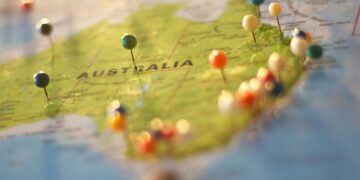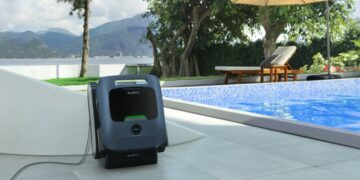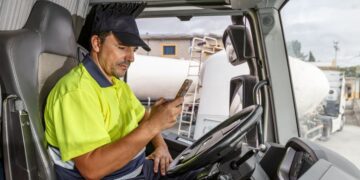Scott Morrison has further ramped up his pressure on states to relax border restrictions by declaring “there will be a Commonwealth definition of a hotspot – come rain, hail or shine”.
The Prime Minister said he hoped such a definition was one agreed to by the national cabinet, which meets next Friday.
“But at the very least, there will be a Commonwealth one. And if there are any differences to that – well, people can explain them.”
A week ago the national cabinet asked its health advisers to come up with a definition. Borders remain the province of states and territories and Morrison is immensely frustrated that states with few or no cases continue to resist his pleas to open.
He told a rural forum on Friday state borders “are putting enormous stress and strain on Australians, especially those in regional and border communities, including by limiting access to essential health care, keeping people from their work, restricting farmers’ accesses to their property and their markets.
“I’ve had hundreds of letters and emails from cross-border communities over the recent weeks and months, as have my colleagues,” he said.
He seized on the case of a woman from Ballina in northern NSW who lost an unborn twin after waiting for a plane to travel to Sydney following difficulties accessing Queensland for treatment in Brisbane.
Describing the story as “heartbreaking”, he said: “There needs to be an explanation as to how these hard border arrangements can lead to people not getting access to this care, as it seems to be the case here”.
Accounts of the woman’s case differed.
The CEO of Northern NSW Local Health District, Wayne Jones, said in a statement that while the preferred place for the birth was in Brisbane, under the border restrictions the woman and her partner would have had to quarantine in a government hotel for 14 days at their expense.
“Following discussion with Royal Prince Alfred specialists in Sydney, the woman travelled to Sydney for the procedure where she would not be required to quarantine,” he said.
But a Queensland health spokesperson said a person from a hotspot could enter Queensland for emergency care without an exemption where that care could not be provided in the hotspot. Queensland Health had not received a formal transfer request for the woman, although a Brisbane hospital was able to accept her.
The spokesperson said Queensland Health also did not receive any exemption requests in relation to the case. “The final decision to transfer this case was made by the patient’s treating clinicians in NSW.”
Morrison said the only areas of “significant disagreement” in the national cabinet during the pandemic had been over school closures and borders.
He said the shutting of borders early in the pandemic had not been the most pressing issue. “In hindsight, I think back then we should have addressed the principles around how those borders were being handled at that time. If I had my time over then I think we would have spent more time on that,” he said.
Referring to the woman’s case, he said: “It’s unthinkable …. to know that this family has had to be dealing with border permits at a time when … the only thing that mattered was the health of their child.”
“I hope I can get some better arrangements and [states will] hear my criticisms … on behalf of Australians we’ve got to try and get this worked out.”
Morrison said “the idea that we’re going to live with domestic borders until there’s a vaccine is a recipe for economic ruin. That is not the plan.
“The plan is to ensure testing, tracing and outbreak containment, strong quarantine, COVID safe behaviours in the workplace, in the home, at the footy club, at the ground, in this conference. That is how you live with the virus and keep people in jobs. Borders don’t do that.”
Michelle Grattan, Professorial Fellow, University of Canberra
This article is republished from The Conversation under a Creative Commons license. Read the original article.












